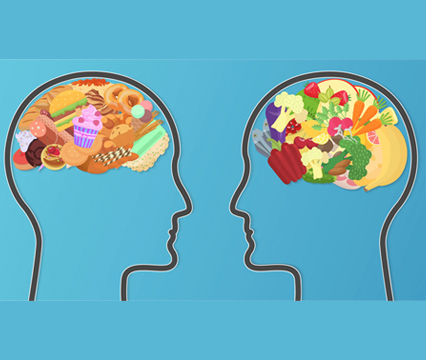Bridging executive function and disinhibited eating among youth: A network analysis
Recent evidence points to poor executive function (EF) as a predisposing factor to obesity in young individuals, evidenced by the links between disinhibited eating behaviors observed in individuals with poor EF, however, the underlying mechanisms behind this relationship remain poorly understood. Bryne et al. (2021) propose the use of network analysis as a novel approach to understanding the links between disinhibited eating and poor EF. Using a sample of young participants (n= 248, aged 8-17 years, 54.8% female, 25.8% non-Hispanic Black, 43.5% non-Hispanic White, BMI %ile = 65.8 ± 27.8), the authors created a partial correlation network between disinhibited eating variables (self-reported eating without being hungry, severity of loss of control over eating, emotional eating, laboratory test meal total carbohydrate and fat intake) and EF variables (general inhibitory control, food-related inhibitory control, decision-making, cognitive flexibility, delayed gratification, and working memory). Analysis of the results revealed that emotional eating was a prominent response to symptoms of depression and that the intake of carbohydrates and fats was substantially related to inhibitory control. Thus, the authors conclude that conducting further research aimed at designing interventions that can target behavioral disinhibition could interrupt the erroneous connections between the components of disinhibited eating behaviors in young individuals, especially between objectively palatable food consumption and inhibitory control, which seems to play a significant role in unhealthy eating habits. [NPID: Binge eating, child, adolescent, childhood obesity, eating behavior, executive function, loss of control, network analysis]
Year: 2021

 Navigation
Navigation






